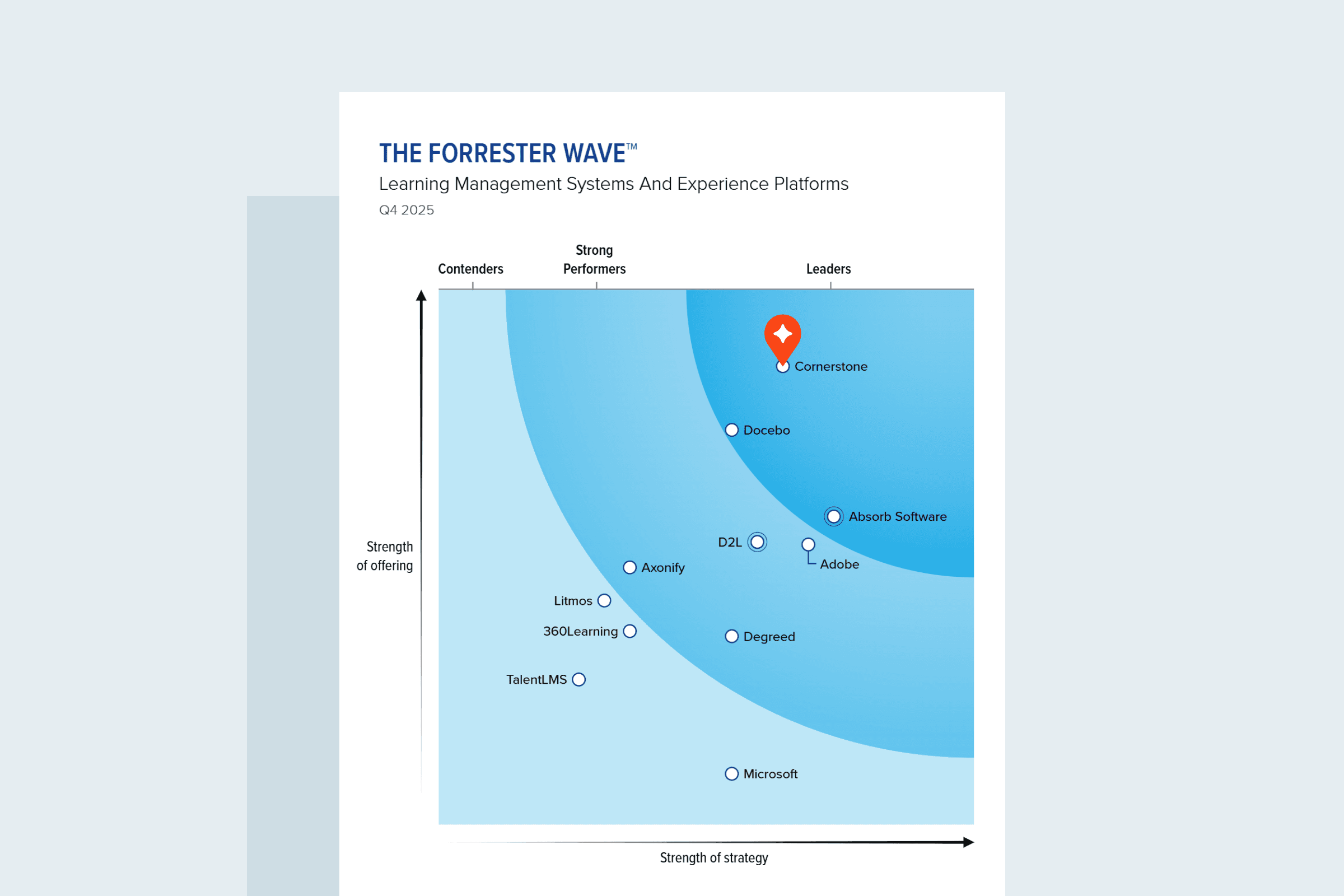Last week marked the 18th annual HR Tech Conference, the world's largest talent management technology and services event. As technology becomes increasingly integrated with talent management, companies both large and small are tasked with figuring out what products and tools they need to keep up — and what trends they should just keep an eye on.
We sat down with Jason Corsello, SVP of Strategy and Corporate Development at Cornerstone OnDemand, to talk about the noteworthy themes from this year's conference. Here, he discusses the new trends on the horizon, why this year could be a breakthrough one for people analytics and the value of persistence over speed when it comes to great innovations in HR tech.
How did this year's conference compare to last year? What stood out as new and intriguing?
The emerging theme, which is very consistent with everything else out there, is Artificial Intelligence. This was the first year we saw vendors focused specifically around AI for recruiting, AI for performance, or AI for "XYZ." Everyone is still focused on analytics, but it went from a few vendors to a lot of vendors building standalone analytics solutions.
Another topic — and this is somewhat of a continuing theme over probably the last two years — is engagement. There are a ton of vendors emerging focused specifically on engagement. Last but not least, recruiting is still a huge focus of the conference.
How is AI being presented in the marketplace? Where is it most applicable right now?
AI for recruiting was a major theme. Companies are trying to use machines to make the screening process more efficient, essentially building an application that manages the initial conversation with the candidate up to 45 minutes in length.
It's still very early, but I think it's something that's going to play out over a number of years. Employers are still working on understanding analytics, so there's still a long way to go before they invest in AI. It's definitely an interesting progression.
Recruiting has an interesting relationship with technology — despite advances in tech, the process is still often frustrating for employees and for job seekers. What ideas or innovations in recruiting tech stood out to you at the event?
Leveraging technology for recruiting has been an ongoing theme for 20-odd years. One of the big problems everyone has been trying to solve is the "black hole" of recruiting: the candidate submits her resume, and it goes into a black hole.
A lot of vendors are addressing this by building talent pools that allow companies to engage with active or passive candidates. And there's more of a focus on internal recruiting, too. That was an interesting theme I heard more about this year — the whole concept of "mobility," or essentially being able to mine your own internal talent pool.
Companies have employees that don't necessarily want to be managers and don't want more senior-level roles, but want to continue to grow within the organization. And one of the best ways to grow without moving up is to try new things out and explore new opportunities.
You mentioned people analytics, potentially the most frequent topic of conversation when it comes to HR tech. Do you think this is a breakthrough year for companies in terms of analytics maturity?
The good news is that all of the vendors are talking about [analytics], so that certainly spurs companies wanting to do something about it, versus two years ago when there were only a handful of vendors really delivering. I think this will be an interesting year for analytics, in that people are going to embrace it because of so many HR technology vendors with high-quality products.
But it's not just the product that matters. People also need the resources and the skills to be able run an analytics report and interpret the data. There's still a lack of skills in HR, and the most progressive companies are starting to create roles specifically around HR analytics.
What was your biggest takeaway from the conference?
You know, a lot of these trends stay consistent year to year. Enterprise software takes a lot of time and persistence. It's important to remember that people often overestimate what they can do in one year (or in a first release!) and underestimate what they can do in 10 years. The vendors that start to break out after three to four years are often the ones to watch the closest.
Photo: Twenty20


